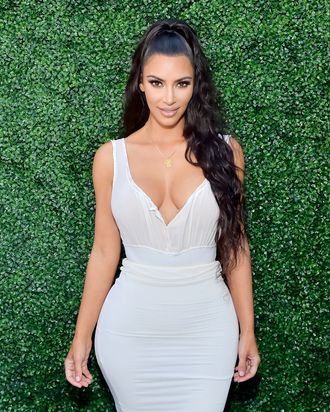
“Women lawyers & judges wear suits, including dresses with jackets, for work,” D.C.-based attorney Leslie McAdoo Gordon wrote. “It is not a great look that ACB consistently does not. No male judge would be dressed in less than correct courtroom attire. It’s inappropriately casual.”
Female attorneys and judges swiftly pushed back to express frustration that discussion of a woman in public life had turned once again to her clothing.
“Basically every professional woman I know (including myself) has serious anxiety about what they wear to work,” tweeted Carissa Byrne Hessick, a criminal law professor at the University of North Carolina. “Crappy takes like this one are a big reason why.”
“Who cares what she wears?” wrote Mary Ziegler, a law professor at Florida State University. “If she wore a Halloween costume, or walked in naked, this would not change: Amy Coney Barrett is very accomplished. … If you care about what she is wearing, please have a conversation with yourself”
Arkansas Supreme Court Justice Rhonda Wood pleaded with people to stop creating rules about what judges should look like and pointed out that clothing choices for female jurists are tricky.
“Can we try to just all be kind and generous and realize there are many factors that implicate a choice?” Wood wrote. “Lets try to be nice”
The objection to Barrett’s outfit represents a common way of discussing women in the public sphere, experts say: surface-level judgments about whether their clothing choices are right or wrong, instead of deeper conversations about how they — and their male colleagues — might be using fashion to convey a message, push an agenda or frame their image.
Pamela Stone, a sociology professor at Hunter College, said that happens in part because women are newer to respected fields like the law. While a suit and tie form a uniform of sorts for white-collar men, she said there is no firmly agreed-upon equivalent for women.
For now, Stone said a woman who chooses not to wear a suit in a professional situation should be aware that other people may debate that decision.
“It’s a signal of women’s precariousness in the profession, their new kid on the block status, that what they wear is going to be scrutinized this way,” said Stone, who is also the author of “Opting Back In: What Really Happens When Mothers Go Back to Work.” “And therefore, deviations from the tried and true is unfortunately going to elicit this kind of commentary, which is a distraction.”
Kendall Funk, an assistant professor of political science at Arizona State University, said that because men created the nation’s political institutions, they’ve set the norms for what’s considered professional attire there. Clothing that deviates from those standards is often deemed inappropriate, she said, while a woman wearing a suit and tie, like most men, is likely to be viewed as too masculine and therefore unprofessional.
“Professional women are constantly trying to find the right balance between being appearing too masculine or too feminine and finding ‘professional’ clothing that fits their unique body type,” Funk said in an email.
But Einav Rabinovitch-Fox, a visiting assistant professor of women’s and gender history at Case Western University, said there are ways of discussing the fashion choices of both female and male public figures that are much more enlightening than how these conversations tend to happen.
“It needs to be part of a larger conversation and not the only conversation,” Rabinovitch-Fox said. “The conversation needs to be framed as how does she use clothes? Does she present herself in a certain way that conveys certain messages?”
In Barrett’s case, Rabinovitch-Fox said the dress she wore on the first day of her confirmation hearing might suggest that she was emphasizing her femininity and that the magenta color could be a statement of her independence from people’s expectations — a sentiment that she has repeatedly expressed this week.
Rabinovitch-Fox said the criticism of Barrett’s choice not to wear a jacket exemplifies the dilemma of whether a woman who appears feminine will still be considered professional.
“I think it’s a really fine line that a lot of women are dealing with every day,” she said. “I don’t think there’s one right answer to that.”
Read more:
October 14, 2020 at 03:50AM
https://ift.tt/2ItcXSY
Amy Coney Barrett was criticized for her dress, part of a long history of judging women’s clothes - The Washington Post
https://ift.tt/2KksXom
Dress

No comments:
Post a Comment